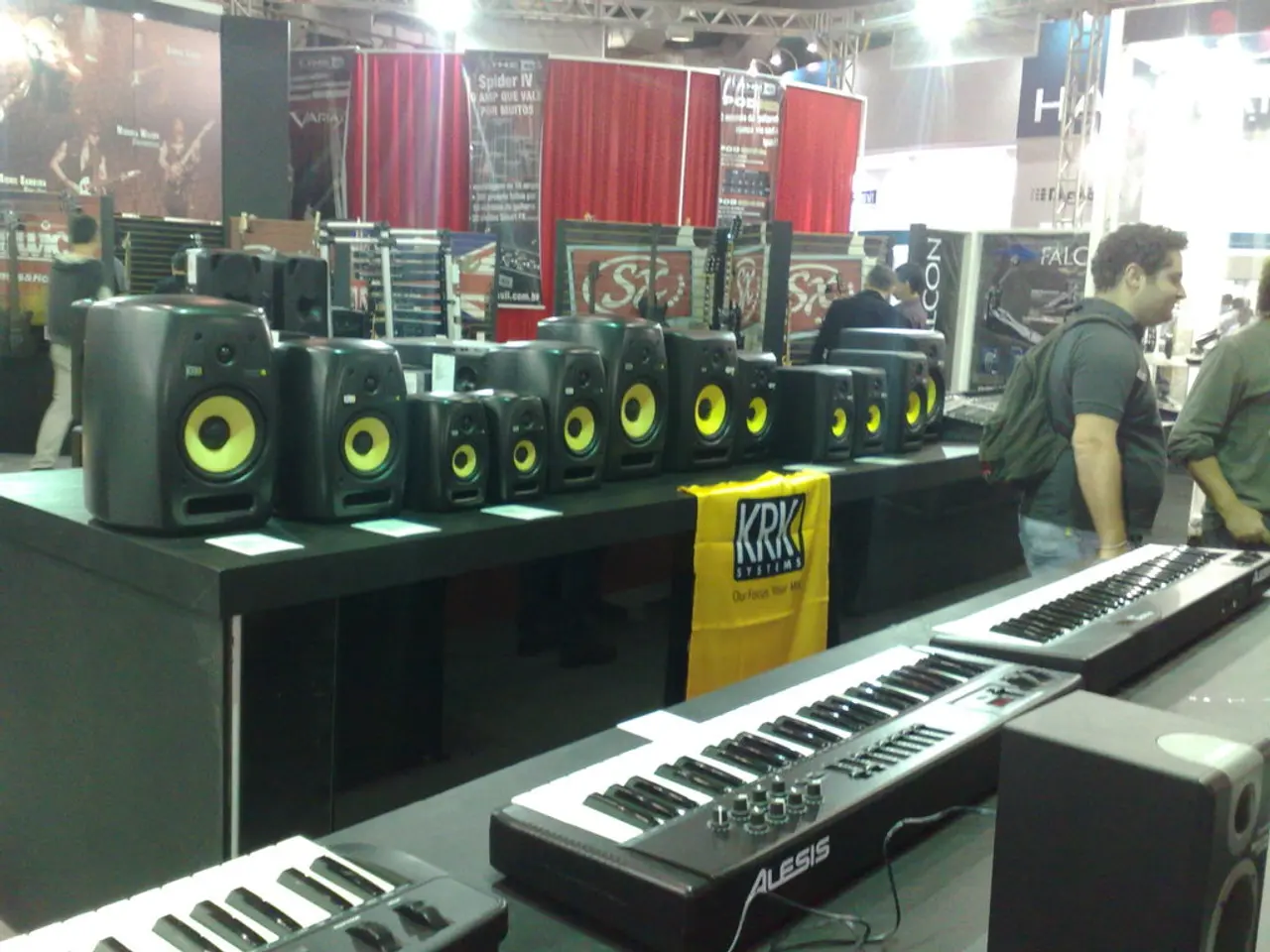Stock Market Closes Another Successful Week on Wall Street
Wall Street's Mixed Performance Amidst Economic and Geopolitical Risks
Wall Street witnessed a mixed performance this week, with the S&P 500, Dow Jones industrial average, and Nasdaq all closing higher, while some individual stocks experienced significant fluctuations.
According to Ulrike Hoffmann-Burchardi, chief investment officer for the Americas and global head of equities at UBS Global Wealth Management, Wall Street's sentiment remains vulnerable to tariff, economic, and geopolitical risks.
The S&P 500 rose 0.8% and finished just shy of its record set last week, with the Dow Jones industrial average climbing 0.5%. The Nasdaq composite added 1% to its all-time high. Nvidia rose 1.1% and Apple gained 4.2%, while shares in Warner Bros. Discovery sank 8% and Paramount Skydance slid 10.5% a day after the company's $8 billion merger. Expedia Group rose 4.1% due to encouraging financial results.
The Federal Reserve's last decision held interest rates steady, but two votes favored a rate cut. The expectation for an interest rate cut by the Fed in September is high, with Wall Street betting on a quarter-point reduction. The yield on the 10-year Treasury rose to 4.28% from 4.25%, while the yield on the two-year Treasury rose to 3.76% from 3.73%. Bank of America gained 2.4% and Mastercard rose 2.3%, helping drive the market higher.
The trade war, initiated by President Trump, contributed to inflationary pressures that influenced market expectations of a Federal Reserve interest rate cut. The tariffs increased costs and economic uncertainty, pushing the Fed toward more accommodative (lower) rates to support the U.S. economy amidst trade tensions.
However, lower interest rates can give the economy and investment prices a boost, but they can also push inflation higher. The Fed is trying to cool inflation down to its target rate of 2%, while also maintaining full employment. The economy could be weakening, as indicated by reports of higher inflation in June and a slowdown in hiring in July.
European markets were mixed, while Asian markets closed mostly lower, except in Tokyo, where the Nikkei rose 1.9%.
[1] Source: CNBC, Bloomberg, and The Wall Street Journal.
- The rise in technology stocks, such as Nvidia and Apple, contributed to the overall improvement in Wall Street's performance, while entertainment companies like Warner Bros. Discovery and Paramount Skydance saw a drop following a major merger.
- The Federal Reserve's decision to hold interest rates steady, despite two votes favoring a cut, has caused Wall Street to speculate about a potential quarter-point reduction in September, driven primarily by geopolitical risks and inflationary pressures caused by trade wars.
- California-based companies, like Expedia Group, have reported encouraging financial results and seen their stocks rise, regardless of the mixed performance on Wall Street.
- In the field of science, the potential impact of tariffs and geopolitical tensions on research and development activities remains uncertain, as businesses and governments must navigate the economic risks they present.
- Lower interest rates can stimulate economic activity and investment, but they can also lead to increased inflation, making it challenging for institutions like the Fed to balance supportive monetary policies with maintaining their target inflation rate of 2%.
- In the realm of finance and investing, the mixed performance on Wall Street has been influenced by various factors, including economic, geopolitical, and tariff-related risks, as well as broader geographical trends in global markets.




